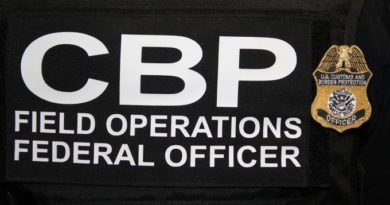From the State Police to the Maritime Police Force, EUCAP Somalia support to the maritime law enforcement agencies in Puntland
Bossaso is one of the main economic hubs of Puntland, in north-eastern Somalia, as it’s also the heart of maritime commercial centre of the region. Being the headquarters of maritime law enforcement agencies, such as the Puntland Maritime Police Force (PMPF) and the Bossaso Port Maritime Police Unit (BP-MPU), Bossaso is the place where technical assistance projects can be implemented at best to support the enforcement of the rule of law.
The Puntland Maritime Police Force (PMPF) objectives is to prevent, detect, and eradicate piracy, illegal fishing, and other forms of criminal activity off the coast of Somalia, as well as to protect marine resources more broadly while the Bossaso Port Maritime Police Unit (BP-MPU) objective is to perform Port Security.
To operate more effectively, security and law enforcement entities in Puntland require, among others, a greater grasp of the international maritime rules governing search and rescue operations, the prevention of maritime crimes, and the protection of the marine environment.
How could those agencies be supported to expand their capabilities and operate adequately?
With the release of restrictions for COVID-19 pandemic, EUCAP Somalia Field Office in Garowe has increased its operations in Bossaso and boosted its activities, such as workshops, on job trainings, and equipment installation to support capacities of the maritime law enforcement agencies to better perform their Coast Guard functions.
Earlier this year, a workshop on international maritime conventions have been delivered to allow officers of the PMPF to get familiar with the four pillars of the International Maritime Organization (IMO) such as the International Convention for the Safety of Life at Sea (SOLAS), the International Convention on Standards of Training, Certification and Watchkeeping for Seafarers (STCW), the International Convention for the Prevention of Pollution from Ships (MARPOL) and the Maritime Labour Convention (MLC). In addition, other conventions related to maritime safety and security and ship/port interface have also been studied, with a particular focus on the International Convention on Maritime Search and Rescue (SAR) and the Convention on the Prevention of Marine Pollution by Dumping of Wastes and Other Matter (London Convention for short). All those international conventions are followed by all shipping nations, are considered as the best way to improve sea-going safety, and must be well acknowledge and integrated by PMPF while carrying out their duties at sea.
Subsequently, a Maritime English language courses based on the International Maritime Organization (IMO) for intermediate and upper intermediate levels was delivered to BP- MPU to improve English proficiency, a skill necessary for the Coast Guard operational capability within an international setting.
In addition, to enhance the capacity building program for the PMPF, initial capacity assessments have already been conducted and focused trainings are planned to be delivered on search and rescue, fishery inspection, navigation and communication, during the next mandate.




